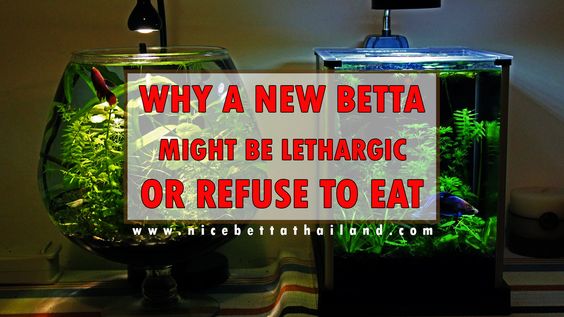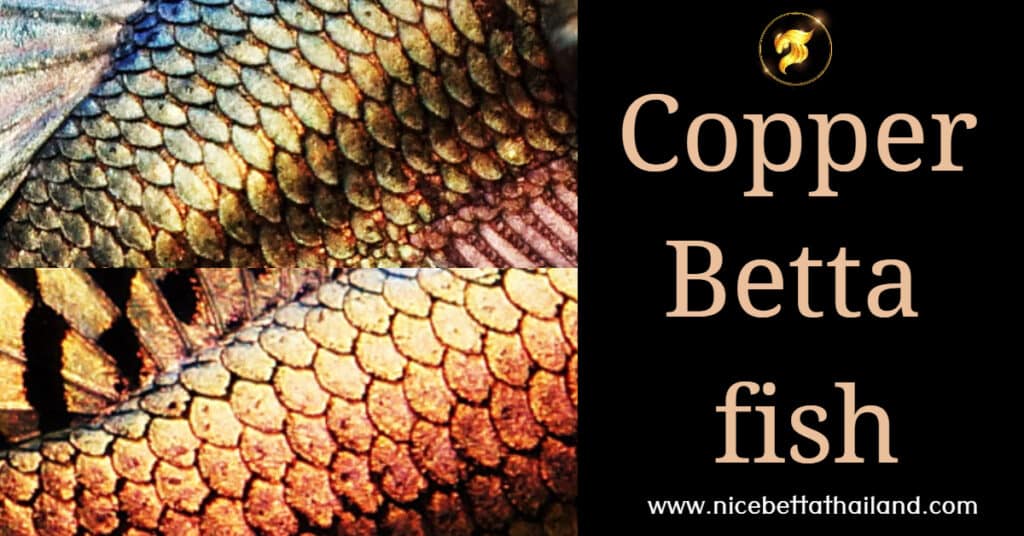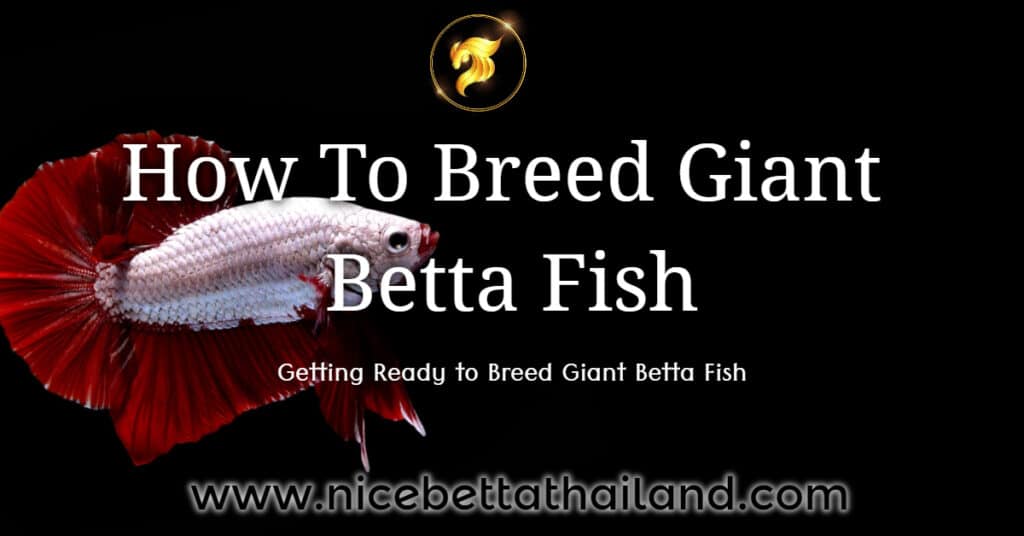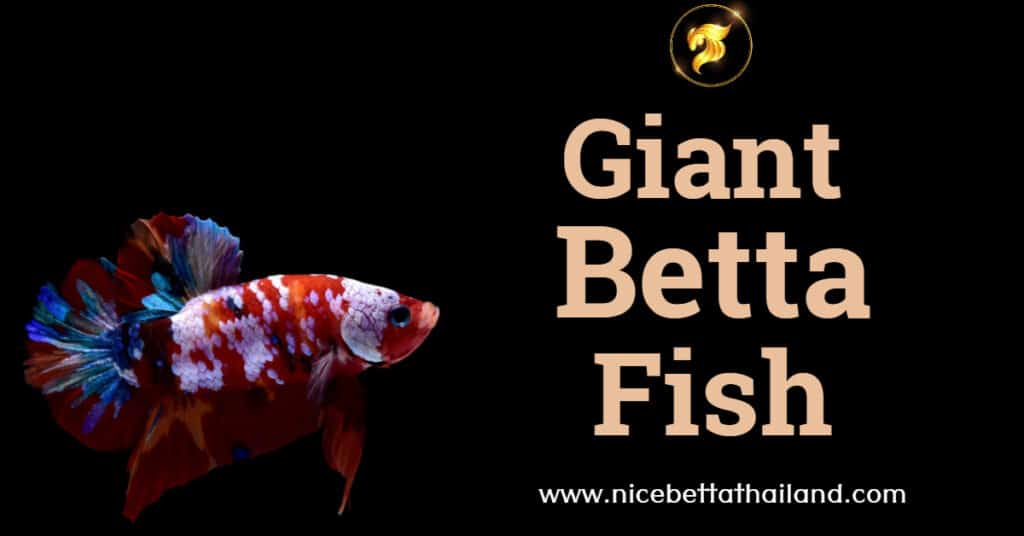If you just got a Betta fish, congratulations! They are very pretty, very personable fish that can bring much pleasure to their keepers. But they have some needs that must be met. If you aren’t meeting those needs, there can be problems.
A newly acquired fish may need a few days to settle into a new home, but after that, if he’s not eating or seems lethargic, there are things to check.
And, before I start, there is one other thing I’d like to point out. When the fish are kept in small containers in stores, the water can get to be very poor in quality. We tend to think the best thing is to hurry the fish into fresh, clean water. That’s what we would want, right?
But fish hate sudden changes and if the change is too big, it can shock them badly, even kill them at times. So if you can, test the water they come in, particularly for pH. If there will be a change in pH of one full point or more, either higher or lower, between the water in the cup and the water in the new fish’s tank, then please take at least a day to slowly acclimate the fish to the new water conditions. (One full point of pH is from 5-6, or 8-7, not the smaller points in between.)
The way to do that is to take a bit of water out of the container and replace it with a bit of conditioned new water at the same temperature. Do it again; every few hours. When the fish goes into the new tank water a day or so later on, he won’t be shocked and should adjust much more easily to his new home.
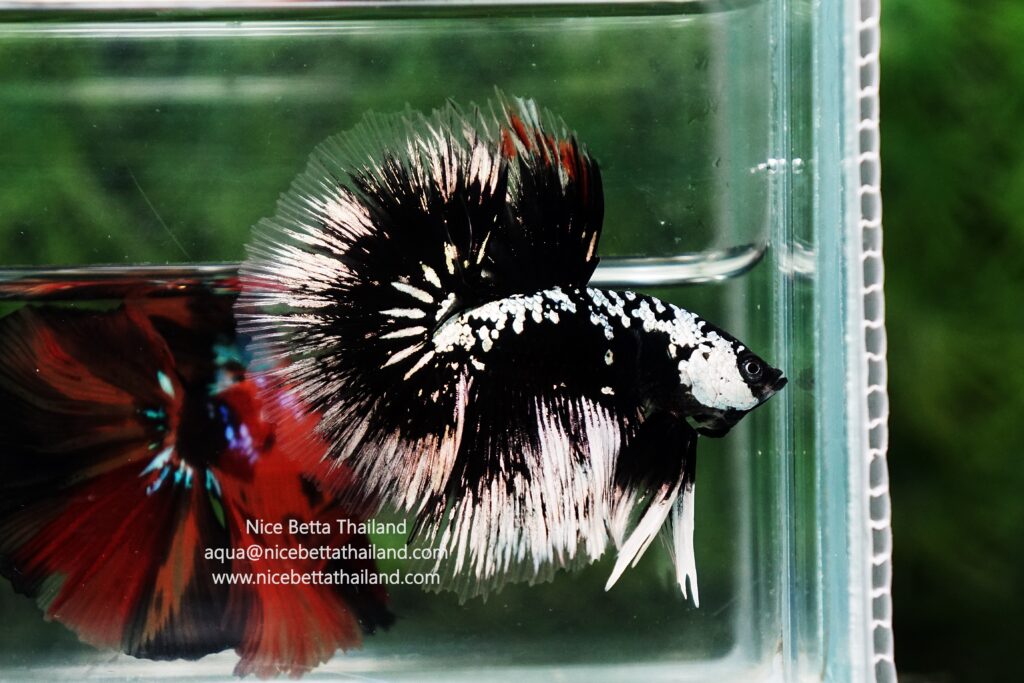
Things to Check
So, the first thing to check for is ammonia or nitrite or nitrate in the water. You should have water testing kits on hand. What tests can tell us cannot be learned in any other way, so they are important.
Chances are there’ll be some ammonia in a new tank, especially if you did not cycle the tank before the fish came to live in it. That’s the Nitrogen cycle, if you’re not familiar with the term. You can read about the cycles in many places here on MAC. Look for ‘ fish in cycle’ or ’the Nitrogen cycle’.
If you did not cycle, you’ll need to do that, and while you do, you must never allow the ammonia or nitrite to rise over .25 ppm. Not ever. If the levels do rise higher, then you must change enough water to get them back down to .25 or less, as soon as possible. The ammonia and nitrite are much more dangerous to the fish than any large water change will be.
The next most common problem is a tank that’s just too small. The fish really shouldn’t live in anything under 3 gallons in size. One gallon is too small and one litre or less isn’t even remotely ok for any fish. A vase is unacceptable unless it holds at least 3 gallons of water. Never mind what the pet shop said about Betta fish living in tiny puddles. That’s another tale entirely! They don’t fare well in tiny containers.
Another common reason for lack of appetite or lethargy could be that you are doing too few partial water changes.
So, how often are you doing water changes? Have you done a water change at all?

If partial water changes are not being done once a week, then that is too few changes. I like to see changes of at least 40% of the tank’s volume every week. Plenty of fresh water is a fish’s best friend, the best friend he can ever have in life.
The truth is that Bettas should have at least 5 gallons (20 litres) of water to swim around in. More than that is much better. Fish are much more likely to live long healthy lives if you give them more space to live in, rather than less.
Check the temperature of the water. The fish come from Thailand, where it’s very hot all the time. They need their water to be between 78 – 82 F, all the time. If your room is not that warm, all night and all day, then you need to provide a heater. If the fish are chilled they often won’t eat and won’t move much.
If the filter is putting out too strong a current, the fish will probably find the quietest spot in the tank and stay there. Their very large fins make it difficult for them to swim in any current. If the filter output is too strong, it needs to be baffled or adjusted, or a different filter used instead. If the fish is being blown around the tank like a sailboat without a rudder, it’s much too strong a current.
These are among the most common reasons for the fish to be lethargic or refuse food in their first weeks in a new home.
What do I do if my fish is really sick?
Whenever your fish appears to be sick the first & best thing to do is a partial water change of 50% of the tank volume. In cases of fin rot, which is distressingly common to see, daily changes or every other day changes are not too much. Always ensure that the new water matches in temperature and has been dechlorinated before you pour it in, very gently.
Then check with MAC and we’ll try to help figure out what might be wrong with your fish.
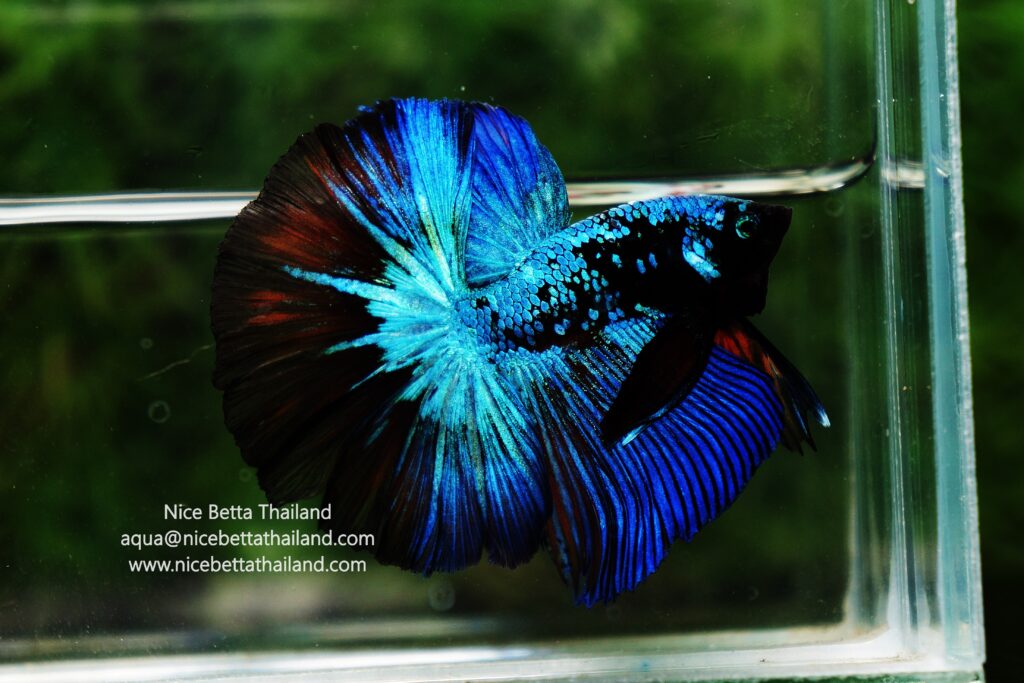
Diet for Betta fish
Some Bettas will not eat food that does not float. Look at the shape of their mouths. The mouth turns upward – that’s often seen in fish that feed at the surface, on insects and such things.
Some of these fish won’t follow food as it sinks below the surface. It’s also normal for them to mouth a pellet and spit it out again. It can be a way of working it down gradually and normally they will work at it until it is eaten.
Smaller pellets can help with this – 1 mm size when dry is my preference. And it is best to soak dry food first, in a bit of tank water, so it is well-moistened. It is much easier for the fish to eat moist food. And then overly dry food won’t over-expand in the stomach after it is consumed.
Rarely, you run into one that will only eat live foods. That can be frustrating if it happens. Live food can be had, but it may take some effort to get it.
Despite their upturned mouth, the fish have no problem chasing live food anywhere in their tank or taking it off the bottom of the tank. Live food is not only good for them nutritionally; it is also a wonderful environmental enrichment. They can indulge their natural hunting instincts, while they get perfectly natural stimulation and exercise, which is all beneficial. Hunting for food is what they would be doing much of the time if they lived wild.
Frankly, I prefer to give them as much live, or frozen food as possible and very little dry food. I think it’s safer for them. It is certainly more natural. For the pellets I do use, I strongly prefer that they be no larger than 1 mm in size.
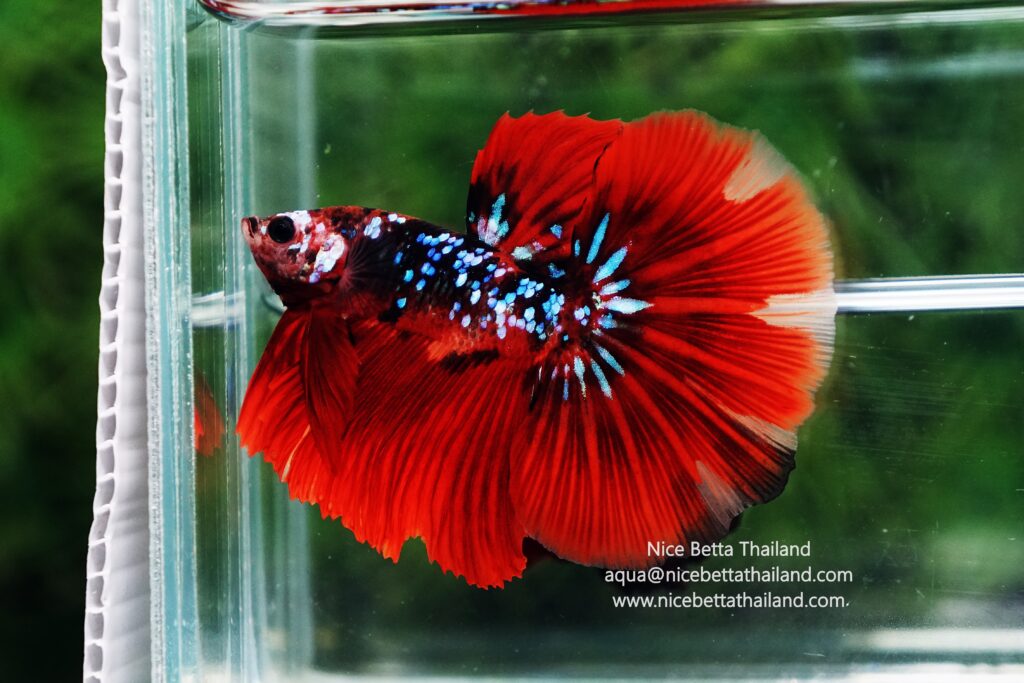
Many Betta fish pellets are 2 mm and they all get larger after they absorb water. The smaller pellets seem to be easier to for them to eat. They need not be specifically for Betta fish either. If you tip soaked pellets very gently onto the surface tension of the water, most of them will float long enough for most fish to eat.
I’m not especially keen on freeze-dried food for fish, primarily because it is so very dry. If you use it, soak it thoroughly in a bit of tank water. The fish are prone to some digestive disorders so moist foods are safer for them and that’s also why I think live foods are safer for them.
As for suitable live foods, there are several choices. Adult brine shrimp can be very good, most especially if they are well fed first. Powdered spirulina can be used to feed brine shrimp you have purchased from a store if they come with empty bellies. They’ll be pink if they are empty – they take on the colour of their food, which can be seen through the stomach walls. They will live for more than an hour in fresh water, more than enough time to be hunted down and eaten.
Mosquito larvae are terrific food, as are daphnia. Both of these will survive in the tank until they are eaten. Or until the mosquito pupates, which gives you time to dispose of the pupa before it becomes a mosquito!
It’s often possible to collect live daphnia in spring, from streams or lakes. Mosquito larvae can be found almost anywhere in summer, in any bit of still water. You can also easily culture daphnia at home if you don’t mind doing so. They’re interesting little creatures that swim with a unique jerky motion.
Another choice would be amphipods ( gammarus), known somewhat scornfully as scuds. They also live until they are eaten. Scuds are crustaceans – they are like minute shrimp. Springtails are another crustacean, a terrestrial one, that makes great food.
Wingless fruit flies are also terrific for the fish. There are also variants that have wings but can only hop or glide; not fly. Drosophila melanogaster ( wingless) and tiny, or D. hydei, a larger fly species. Shops that cater to frog and reptile keepers sell flies and may sell springtails.
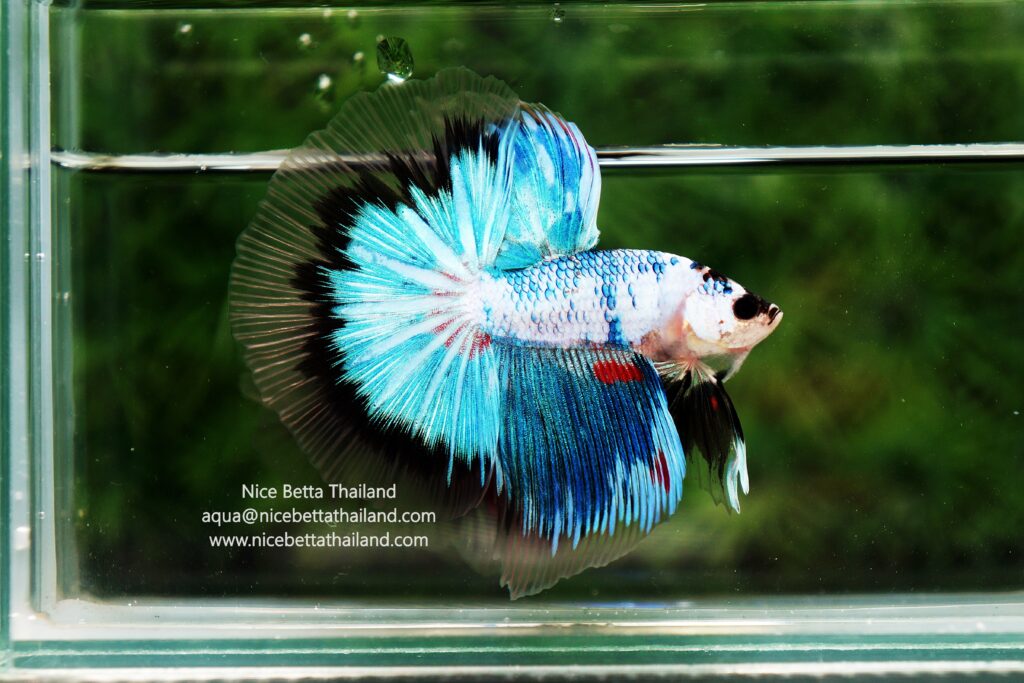
If you cannot provide any live foods, then do try to use some that are frozen. Daphnia or brine shrimp are best and the last choice would be bloodworms. Some places might have live bloodworms, but not very often. Frozen ones are more common. Bloodworms are a bit fatty so they are best given as a weekly treat only. That’s what I prefer to do with any worm, as all worms tend to be fatty. Fry need a lot of fat but adult fish usually don’t.
One thing to be aware of is that most frozen foods won’t have a lot of vitamins to offer. Too often, the little critters that are used as feeders will not be full of food when they are frozen and it is their gut contents that provide most of the vitamins. But, you can fix that; fish vitamins! Add a good vitamin supplement to your frozen foods, like Kent Marine’s Zoe. There are others as well if you look for them. You can add vitamins to flakes or pellets too. Zoe may be a bit of an acquired taste for some fish – you can add something like Garlic Guard or Entice to make it taste better.
One thing to know is that frozen foods most often come in small cubes. One cube will be too much for one Betta, so you need to chip or chop off a suitably sized portion and put the rest back in the freezer, well wrapped so it will not become freezer burned. Thaw the portion and then feed it to the fish.
Remove any leftover food after about ten minutes. If the fish hasn’t eaten it by then, he’s probably not going to and it should not be left to decay.
Other Environmental enrichment for Bettas
I’d also suggest adding some plants to any Betta’s tank. You can use various items of decor too. The idea is to make the tank as interesting for the fish as you can, with things he can swim through or around. Live plants also contribute quite a bit to water quality, by consuming nitrates for food. Nitrates are not often a problem in tanks with live plants.
Live plants work best, I think, as they mimic the native habitat of these fish, but silk or plastic will be fine too. Just be sure there are no sharp, coarse, or rough edges that might damage the Betta’s fins. Check every surface and edge for anything that could snag a fin.
Summary Betta Might Be Lethargic Or Refuse To Eat
Reasons why a new betta fish may be depressed or not eating, highlighting various factors that may affect the fish’s behavior, such as
- Post-migration adjustment It may take some time for a betta fish to adjust to its new environment. If there is a rapid change in water conditions, the fish may become stressed and not eat.
- Water quality Excessive levels of ammonia, nitrite, or nitrate in the water may cause stress and not eat.
- Tank size Keeping a betta fish in a tank that is too small may cause stress and not eat.
- Water changes Failure to perform regular water changes can cause poor water quality, leading to a betta fish not eating.
The Nice Betta Thailand Breeders recommends that betta owners regularly check the water quality and perform at least a 40% water change per week to maintain a healthy environment for the fish.
If your betta fish continues to be depressed or not eating, consult a specialist or veterinarian specializing in aquatic animals or betta fish doctor for further advice.
I hope you have many happy years with your fish!
Looking for Rare betta fish?
If this article Betta Might Be Lethargic Or Refuse To Eat was useful to you You can leaving a 5-star reviews for It’s an encouragement. For us make encourage us in our research. Research information about betta fish for to present useful information further

Also we have group talk about betta fish for sale and share any new tip take care information on Web3 socialFi group

Right now we have betta fish doctor help every bettas lover by top breeder in Thailand to cure or share more tip on Animalverse social
If your bettas fish sick or need tip to treat help or join event prize with AVC Token
Let’s join the group many top breeder will help to answers in betta fish community
More tip :
15 Common Betta Fish Diseases Prevention and Treatment
Which best food for betta fish
All of Betta Fish A Guide on Patterns, Color in the world
The most expensive betta fish in the world.


